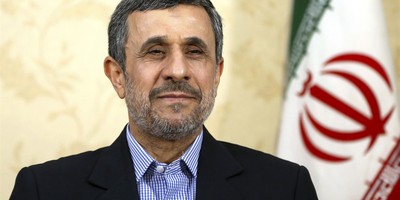WASHINGTON, D.C. -- Terrence McAuliffe, the multimillionaire wheeler-dealer imposed by the Clintons on the Democratic National Committee as its chairman after the 2000 election, quickly paid back his benefactors. He designed a front-loaded primary system intended to confirm Sen. Hillary Clinton as presidential nominee by Feb. 5. Contrary to expectations, however, no choice will be made for months and perhaps not until the national convention at Denver in late August.
There is no mathematical possibility of Mega Tuesday balloting in 22 states tomorrow for 1,681 delegates -- labeled the first "national" primary -- giving either Clinton or Sen. Barack Obama close to the 2,025 delegates necessary for nomination. That unexpected reality is produced by Obama's appeal, Clinton fatigue and extreme proportional representation adopted by the Democratic Party.
The nation's two political parties have reverted to form after appearing to have exchanged identities. Democrats a year ago seemed to be emulating Republican practice in settling for an early anointed candidate, Sen. Clinton, while the divided GOP field resembled historic Democratic practice in the absence of an incumbent president. Republicans, who traditionally abhor competition, are ready tomorrow to crown Sen. John McCain as their nominee. Democrats will still be battling.
The full consequences of adopting proportional representation three decades ago finally will be realized by the Democratic Party. In 1972, supporters of Hubert Humphrey protested George McGovern's winner-take-all capture of the huge California delegation that clinched the presidential nomination. Appalled at being called majoritarians, McGovernite liberals adopted proportional representation. For the next seven presidential elections, Democrats have avoided its impact creating a stalemate, in the absence of a prolonged two-candidate contest.
Recommended
Under proportional representation, a candidate collects delegates by achieving the 15 percent viability level either statewide or in a congressional district. In a four-delegate district, Clinton could win 59 percent of the vote and still split the delegates with Obama, two to two. The impact of California consequently is dissipated in view of polls showing Clinton's former double-digit lead cut in half. Although she can win handily in New York and New Jersey, Obama will be first in Illinois and smaller states, and is strong in barometric Missouri. So, the supposed national primary will settle nothing.
Nor, because of delegate division, is it guaranteed that a nominee would be selected by March 4, in the Texas and Ohio primaries, or even by April 22, when Pennsylvania votes. Many of the 796 "super delegates" (unelected prominent Democrats) can remain undecided. Finally, Clinton will try to restore Florida and Michigan delegates purged from convention rolls for scheduling their primaries too early -- primaries that she won virtually uncontested. That raises the specter of rival delegations from those two states arriving in Denver, prompting an old-fashioned credentials fight.
Before that happens, the issue may be settled by either Clinton or Obama emerging as the clear popular vote winner in the primaries and clinching the nomination while short of a majority of delegates. But that begs the question of why the issue is still in doubt. McAuliffe, now the Clinton campaign's national chairman, calculated that front-loading would make his candidate the de facto nominee by now so that full time could be devoted to attacking the Republicans and raising funds against them.
The answer can be found in the surprising list of senators who endorsed Obama after Clinton won the New Hampshire primary: Edward M. Kennedy and John Kerry of Massachusetts, Patrick Leahy of Vermont, Tim Johnson of South Dakota, Ben Nelson of Nebraska and Claire McCaskill of Missouri. McCaskill is the least prominent of the group as a freshman, but she has attracted favorable attention during her first year in the Senate as a principled independent. She was campaigning hard last week for Obama in Missouri against her sister senator.
Senatorial support of Obama helps explain why the McAuliffe plan failed. In addition to habitual Democratic resistance to being controlled, many colleagues simply do not trust Clinton. They complain that in Thursday's debate from Los Angeles she repeated that she opposed the Levin amendment to the 2003 Iraq war resolution because it would "subordinate" U.S. decision-making to the United Nations. It did not, and Clinton made no such claim until her presidential campaign. That kind of performance has helped build the stalemate.
























Join the conversation as a VIP Member